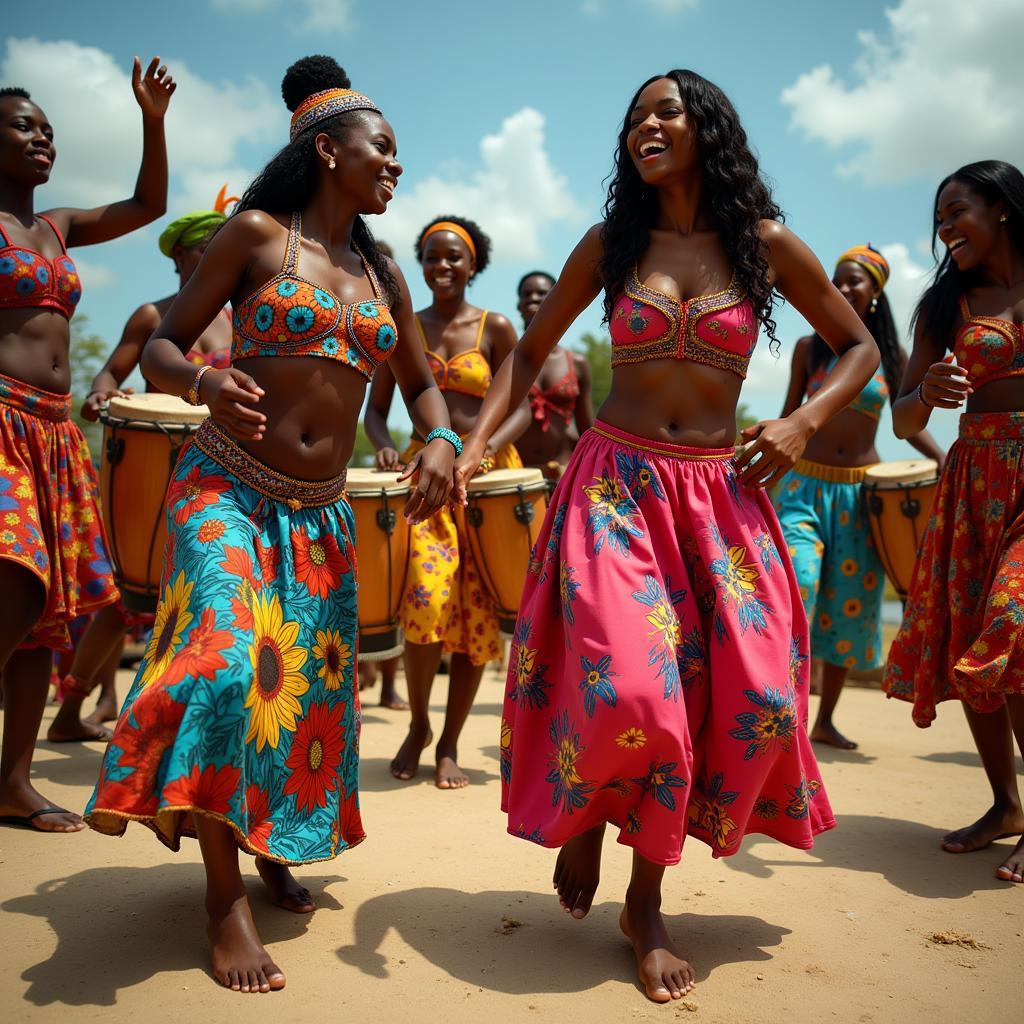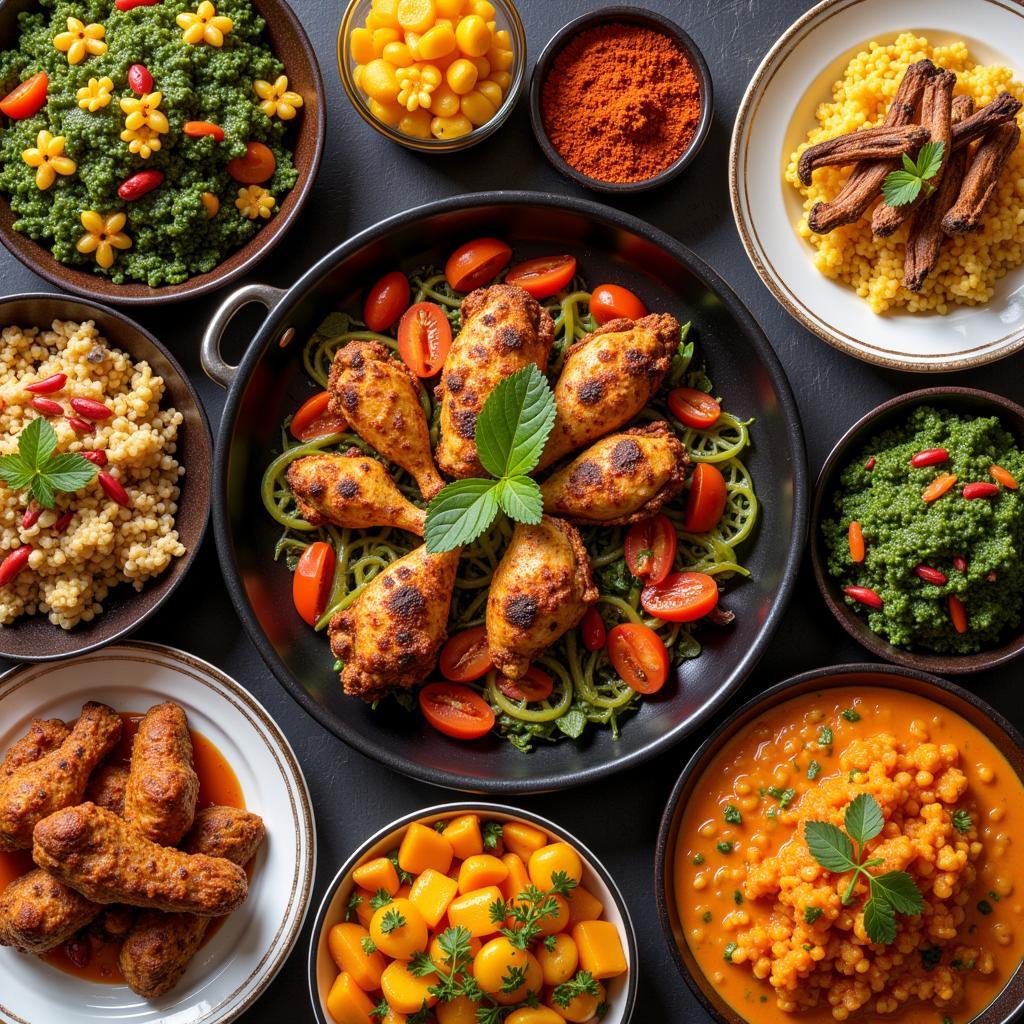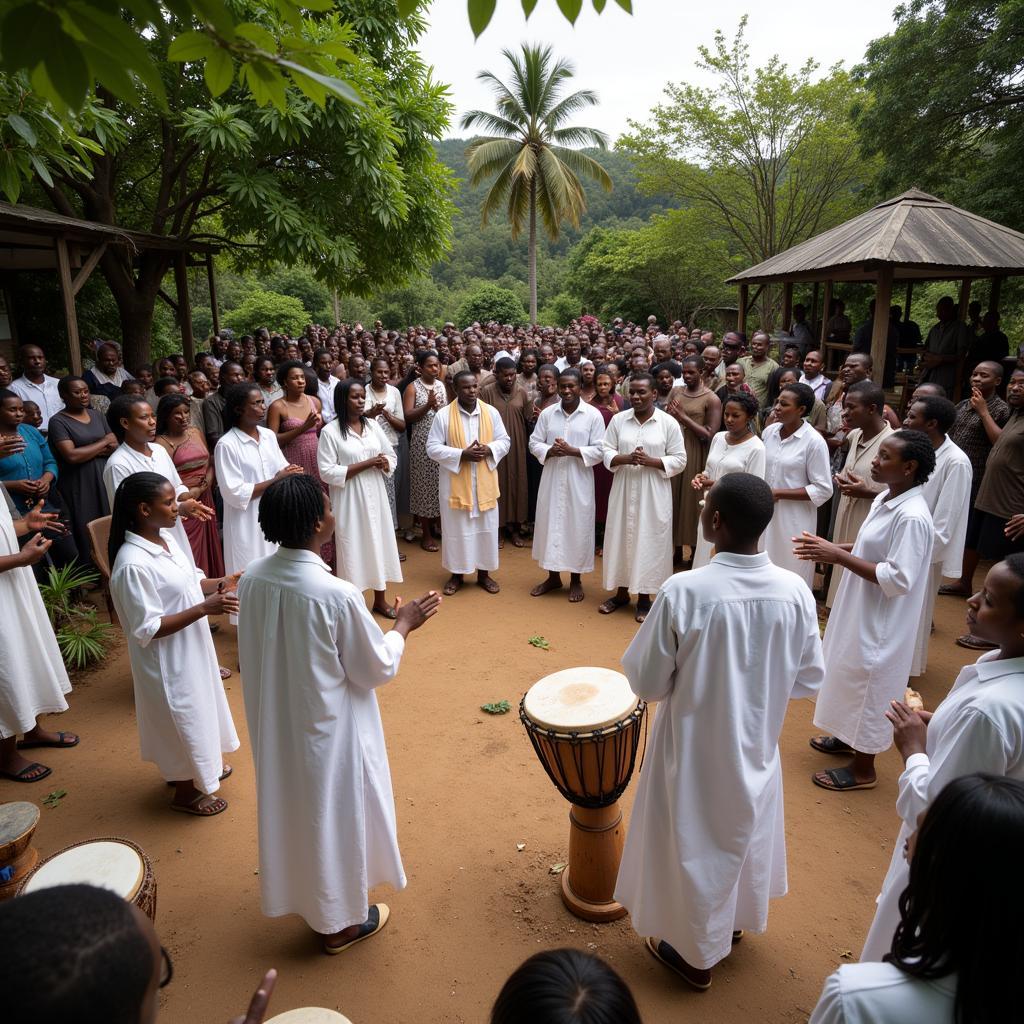Exploring the Vibrant Tapestry of African Caribbean Culture
The term “African Caribbean” speaks to the deep and enduring connection between the African continent and the Caribbean islands. This connection, forged through centuries of transatlantic slave trade, has resulted in a rich cultural tapestry that continues to evolve and inspire today. This article delves into the multifaceted relationship between these two regions, exploring the indelible mark left by Africa on the cultural landscape of the Caribbean.
 African Caribbean Music and Dance
African Caribbean Music and Dance
The Transatlantic Slave Trade: A Catalyst for Cultural Exchange
The transatlantic slave trade, while a dark chapter in human history, played a pivotal role in shaping the cultural identity of the Caribbean. Millions of Africans were forcibly transported to the Caribbean to work on plantations, bringing with them their traditions, languages, beliefs, and artistic expressions. This forced migration led to an inevitable blending of African and European cultures, as enslaved Africans found ways to preserve their heritage while adapting to their new environment.
 African Caribbean Cuisine
African Caribbean Cuisine
The Enduring Legacy of Africa in Caribbean Culture
The African influence on Caribbean culture is evident in numerous aspects of life, from music and dance to cuisine and religion.
Music and Dance: The Rhythms of Resistance and Resilience
African rhythms form the heartbeat of Caribbean music. Genres like reggae, calypso, and salsa all bear the distinct imprints of African musical traditions. Instruments like the djembe drum and the maracas, originating from Africa, are integral to Caribbean music, infusing it with an irresistible energy and vibrancy. Similarly, many Caribbean dances, with their emphasis on rhythmic movement and improvisation, echo the dance forms of West Africa.
Cuisine: A Fusion of Flavors
Caribbean cuisine is a delicious testament to the fusion of African and indigenous ingredients with European cooking styles. Staple foods like rice, yams, plantains, and okra, all with roots in Africa, form the foundation of many Caribbean dishes. The use of spices and herbs like scotch bonnet peppers, thyme, and ginger further reflects the African influence on the region’s palate.
 African Caribbean Religious Ceremony
African Caribbean Religious Ceremony
Religion and Spirituality: A Tapestry of Beliefs
African spiritual practices, often intertwined with Christianity, have significantly impacted Caribbean religious life. Religions such as Santeria in Cuba, Vodou in Haiti, and Obeah in Jamaica all draw heavily from West African spiritual traditions. These syncretic faiths reflect the resilience of enslaved Africans who found ways to preserve their beliefs within a new religious framework.
Celebrating the African Caribbean Connection
Today, the African Caribbean connection is celebrated through various festivals, cultural events, and artistic expressions. From Carnival celebrations to storytelling traditions, the Caribbean proudly showcases its African heritage, recognizing the struggles and triumphs that have shaped its identity. This ongoing cultural exchange serves as a reminder of the enduring bond between Africa and its diaspora, a testament to the resilience and creativity born out of a shared history.
Conclusion
The African Caribbean connection is a vibrant testament to the power of cultural exchange, even in the face of adversity. From the pulsating rhythms of its music to the tantalizing flavors of its cuisine, the Caribbean stands as a living testament to the indelible mark left by Africa on the world stage. By understanding and appreciating this unique cultural blend, we gain a deeper understanding of both the Caribbean’s rich heritage and the global impact of African cultures. For further information, you can explore resources on the African Caribbean and Pacific Group of States.
FAQ
1. What is the main reason for the African influence in the Caribbean?
The transatlantic slave trade led to the forced migration of millions of Africans to the Caribbean, resulting in a significant cultural exchange.
2. What are some examples of African influence on Caribbean music?
Genres like reggae, calypso, and salsa, as well as the use of instruments like the djembe drum, showcase African musical influences.
3. How is African influence reflected in Caribbean cuisine?
Staple foods like rice, yams, and okra, as well as the use of spices like scotch bonnet peppers, highlight African influences on Caribbean cuisine.
4. Are there any religious practices in the Caribbean that show African influence?
Religions like Santeria, Vodou, and Obeah blend African spiritual traditions with Christianity, reflecting the African heritage in Caribbean religious life.
5. How is the African Caribbean connection celebrated today?
Festivals, cultural events, and artistic expressions, such as Carnival celebrations and storytelling traditions, celebrate the African Caribbean bond.
Need Help?
If you need assistance or have any questions, please don’t hesitate to contact us:
Phone Number: +255768904061
Email: kaka.mag@gmail.com
Address: Mbarali DC Mawindi, Kangaga, Tanzania
We have a dedicated customer support team available 24/7 to assist you.


